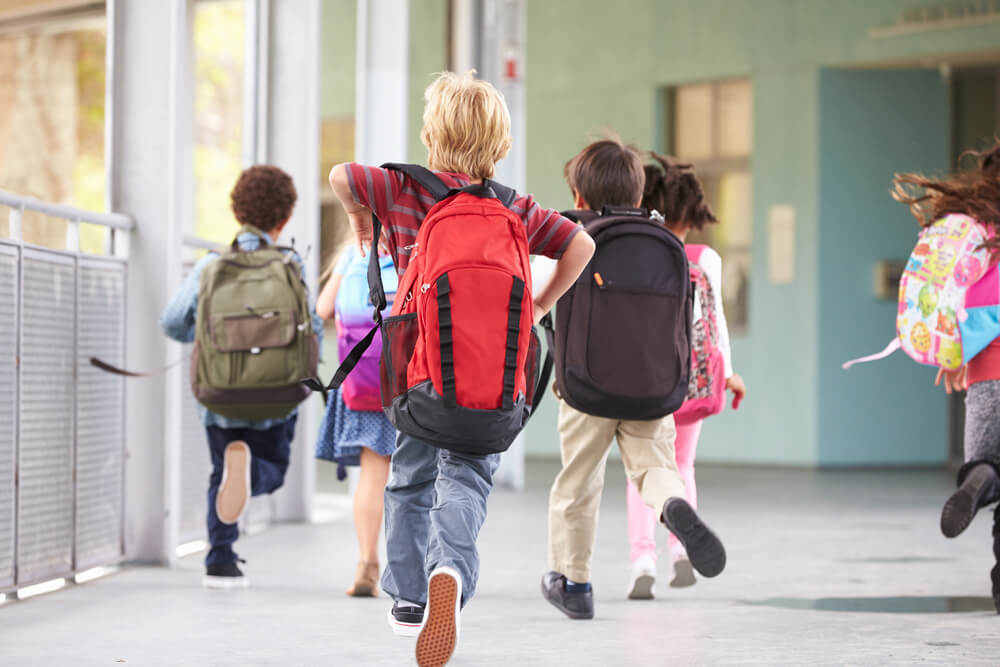Our children spend at least a quarter of their day in school, far from the security provided by home and family, and many of them feel that the pressures they are exposed to at school are greater than they can bear.
The basic purpose of education that we seek to reach and achieve is to find and develop some natural, mental and spiritual abilities in the child, according to his own conditions, which are compatible with his abilities, what he wants for himself and the conditions of the society and environment in which he lives.
Therefore, we must avoid using pressure methods as much as possible, and do everything in our power to develop his talents, in appropriate ways, so that he can obtain a good level of education.
In order for the school to reach a situation based on understanding with the family and love for the cooperation of the teacher, the director, and all the staff who work in it, so that there is harmony and understanding in the daily work of the home and school, through each side performing its duty while continuing to maintain the relationship and communication between them.
Accordingly, the school carries out good upbringing and correct teaching, and educates the student’s mind, and at the same time takes care of the student’s body and health through physical education, so that he is equipped with the virtues and the best and best habits, so that it is possible to achieve cooperation between the family and the school. Parents must know the truth about the work of The teacher, they believe in him, they follow him and help him, and if this cooperation and understanding takes place, they are able to complete and follow their lessons and the duties imposed on them. In order for this cooperation to be achieved in the best way, there must be permanent and continuous communication between the parents and the school, and communication between the school and the parents, that is, there must be Communication in such a case is of the type of communication that goes in two directions and is positive.
Failure of the basic pillars of the educational process will result in psychological and physical exhaustion, which is known as psychological pressure that results from adversity and daily life events that the student evaluates as exceeding his abilities and resources.
Stages of coping with psychological stress:
The body’s response to any environmental requirement consists of three basic stages:
The first stage: Alarm stage: where the organ systems activate to confront the threat by secreting the hormone adrenaline, accelerating breathing and heartbeat, and putting themselves in a state of readiness for fight or flight.
The second stage is the Resistance stage: where the organ systems work to defend themselves against the source of the threat, so the body increases its resistance by exerting greater effort.
The third stage: which is the exhaustion stage: when the organism fails to overcome the threat caused by continuous psychological pressure, and when the organ systems consume their physiological resources, in this attempt this leads to emotional or physical collapse, and this may result in hospitalization or a suicide attempt. At its maximum, it may lead to death.
The nature of the response to psychological stress:
The possibilities of responding to psychological stress are multiple; It includes emotional, behavioral, cognitive and physiological results, and emotional responses are manifested in emotional disturbance: such as fear, anger, depression and guilt. Behavioral responses are also manifested in motor behaviors such as trembling, increased tension, speech disturbance, different facial expressions, escape, attack, and aggression.
As for cognitive responses, they include changes in all cognitive functions, such as perception, judgment, problem solving, motor and cognitive skills, social adaptation, and misinterpretation of reality. The fourth possibility of responses includes physiological changes, including the responses of the autonomic nervous system, the responses of the heart, the respiratory system, the mental glands, the adrenal gland, the response of the skin, its temperature, blood pressure, and heart rate.
Manifestations of school psychological stress:
The most important manifestations of psychological pressures that students are exposed to at school are:
1- Anxiety: It is a state of comprehensive and continuous tension, as a result of the threat of an actual or imagined danger, and is accompanied by vague fear and physical symptoms.
Reasons for anxiety:
Loss of a sense of security: Chronic anxiety is the result of a lack of a sense of security and doubts about oneself. The feeling of anxiety can be projected onto anything and linked to it. The most important factors that can contribute to a loss of a sense of security are:
– Excessive criticism of the child by adults and companions, which leads to his stress and loss of self-confidence.
– Parents and teachers are not consistent in their attitudes and treatment towards the child.
– Adults’ expectations of excessive perfection from children.
– Adult neglect of the child.
2- Daydreaming
3- Skipping school:
Another problem that is observed among students as a result of psychological pressures is the tendency of some of them to run away from school. Why does a student run away from school and how can this be reduced?
Truancy is defined as a situation in which an individual between the ages of 6 and 17 years deliberately misses school without a legal excuse, and without the consent of parents or school officials. It is usually associated with frequent school absences and an increased likelihood of delinquency
Its causes:
1- The parents’ indifferent attitudes towards school, and sometimes the mother’s work, and in this case the student is often from broken families.
2- Difficulties in achievement and anxiety related to school assignments, which the student considers difficult.
3- Some students may be mentally superior to their classmates, and so they stay away from school because they find the lessons boring and uninteresting.
4- Fear of violence at school, or because the student uses drugs, or goes looking for adventure. However, the student who misses school a lot is often running away from something rather than looking for fun.
5- The student’s lack of love for the teacher or the subject.
6- Exams, their difficulty and frequency, and the manner in which they are administered, may lead to escaping from school and searching for another place.
7- The student is preoccupied with a family, personal, social, economic or psychological problem.
8- Poor school conditions; Such as the lack of lighting and heating in winter or air conditioning in summer






